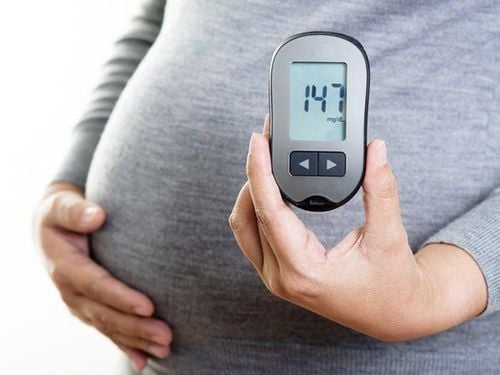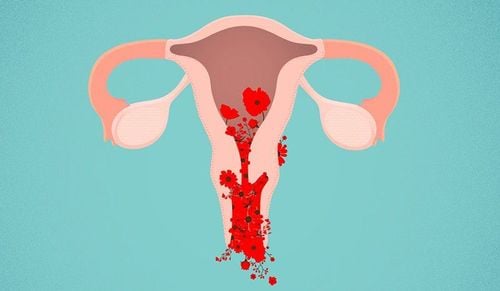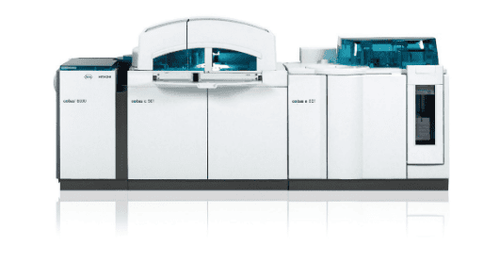This is an automatically translated article.
The article was professionally consulted by Doctor Hoang Thi Anh Tuyet - Department of Obstetrics and Gynecology, Vinmec Central Park International General Hospital.Blood group test during pregnancy is one of the first and important tests. The purpose of blood group testing in pregnant women is to determine the blood group and prevent the risks of blood transfusion during pregnancy and delivery.
1. Overview of blood group testing in pregnant women
Each person has different blood types, there are 4 blood types: A, B, AB and O. Each of these blood groups is further classified based on the presence of other proteins on red blood cells, one of which has Rh factor. If this specific protein is present, it is Rh positive (+), otherwise it is Rh negative (-).
Blood group test in pregnant women is very necessary and is always done in pregnant women. The test helps determine the mother's blood type and Rh factor because this factor is related to the health of the fetus in the womb.
Blood group test in pregnant women can give blood group results:
Blood group A+: if A and Rh antigens are present. Blood group A-: if there is A antigen but no Rh. Blood group B+: if B and Rh antigens are present. Blood group B-: if B antigen is present but no Rh. Blood group AB+: if A, B and Rh antigens are present. Blood group AB-: if A and B antigens are present but no Rh. Blood group O+: if no A or B antigens but Rh present. Blood group O-: if A, B or Rh antigens are not present.
2. Why is it necessary to do a blood group test in pregnant women?
When the blood group test in pregnant woman shows Rh(-) in the mother, the father has Rh(+), the child of this couple may have health problems.
If there are no other abnormalities, Rh incompatibility usually does not cause serious problems if the mother is pregnant for the first time. Fetal blood will not be mixed with maternal blood during pregnancy.
In the second pregnancy and subsequent times. If the fetus still has Rh(+) blood group, the mother's Rh antibodies will recognize the Rh antigen present on the surface of the fetal blood cells and attack them. These antibodies are responsible for attacking and destroying your baby's blood cells. This Rh incompatibility causes an excessive reduction in the number of red blood cells, causing hemolytic disease in the newborn.
In addition, when a mother with blood group Rh(-) can also be exposed to the Rh factor and be stimulated to produce Rh antibodies if she receives Rh (+) blood, or has a miscarriage, there is ectopic pregnancy.
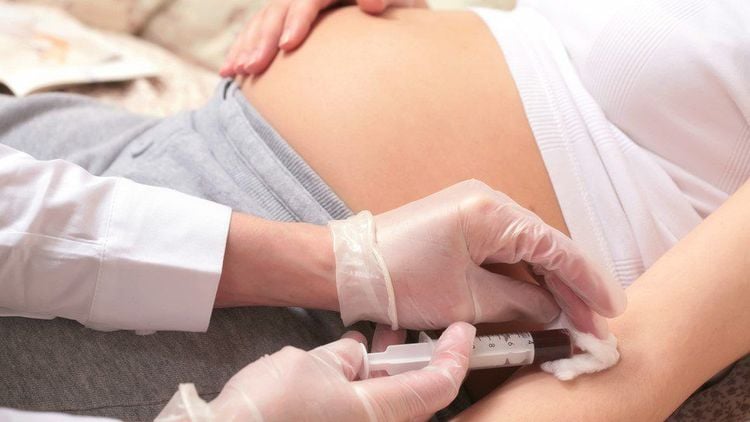
3. How to treat and prevent blood group incompatibility in pregnant women
With great advances in modern medicine, it is possible to prevent complications from Rh incompatibility and treat hemolytic disease in infants.
When testing the blood group in pregnant women and the results show that the mother has Rh (-) blood group, the doctor will prescribe 2 doses of Rh immune serum (Rh immune-globulin) during pregnancy.
First dose: given at 28 weeks of pregnancy. Second dose: within 72 hours of birth. The antibodies contained in the above 2 doses of serum will actively destroy and prevent Rh (+) red blood cells from the fetus from being passed on to the mother's blood, helping to reduce the mother's exposure to Rh red blood cells. (+), preventing the production of Rh antibodies in the mother's body. As a result, the next pregnancy will not have a condition caused by Rh incompatibility.
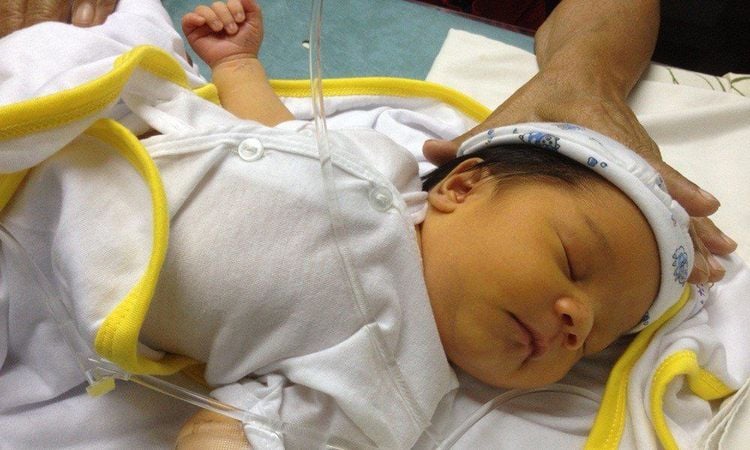
4. Notes on blood transfusion during pregnancy
If a blood transfusion is required during pregnancy, blood group testing in pregnant women will help determine if the blood type being transfused is suitable and compatible with the pregnant woman. Failure to do so will cause red blood cells to clump together, causing a serious reaction or death.
Trắc nghiệm: Bạn có hiểu đúng về dấu hiệu mang thai sớm?
Các dấu hiệu mang thai sớm không phải chỉ mỗi trễ kinh mà còn có rất nhiều dấu hiệu khác như xuất huyết âm đạo, ngực căng tức,… Điểm xem bạn biết được bao nhiêu dấu hiệu mang thai sớm thông qua bài trắc nghiệm này nhé!
5. Other tests for pregnant women
If you know you are pregnant, you should start your appointment as soon as possible for routine antenatal care. This care includes blood group testing in pregnant women to determine blood type. If Rh incompatibility is diagnosed and treated early, pregnant women can have more peace of mind and focus on other important things to welcome a healthy baby.
In addition to testing blood group in pregnant women, pregnant women also need to do some other tests during pregnancy to check their health such as:
5.1 Blood test To assess whether the iron content in the body is deficient or not. no, pregnant women have anemia or not. If so, iron supplements will be indicated. In addition, this test also helps detect blood cell disorders (such as sickle cell disease or hemolysis) that cause anemia in both mother and fetus.
5.2 Dangerous infectious diseases for the fetus Rubella, hepatitis B, hepatitis C, HIV, syphilis.... Based on test results to assess the level of risk to pregnancy and take take preventive measures to limit the harm to the baby at birth.
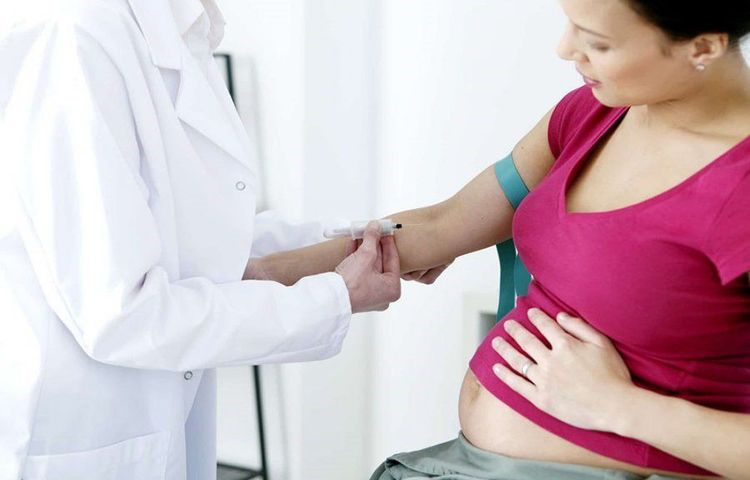
5.3 Double test To screen for some chromosomal abnormalities that cause Down syndrome . The test is done around 11-13 weeks of pregnancy, along with a nuchal translucency ultrasound.
5.4 Gestational diabetes test To check the blood sugar level to assess whether a pregnant woman has diabetes during pregnancy, because gestational diabetes can affect the fetus. This test is done around 24-28 weeks of pregnancy.
GBS test: to check for bacteria that exist in the vagina and rectum, but most do not cause symptoms. A mother infected with GBS can pass it on to her baby during pregnancy and affect the baby. This test is done around 35-37 weeks of pregnancy, by taking fluid from the vagina and anus for testing. Other special diagnostic tests such as chorionic villus sampling, NIPT, amniocentesis, are indicated when needed..
6. Which hospital does the most accurate blood group test in pregnant women?
Vinmec Hai Phong International General Hospital is the only hospital in Hai Phong city that owns a very modern Wadiana fully automatic blood grouping machine from Spain, allowing ABO blood grouping techniques to be performed. /Rh (D) on the automaton.
Testing blood group in pregnant women with this automatic machine allows to minimize possible errors compared to manual methods.
The blood grouping assessment process is performed by a doctor with professional experience: Doctor Pham Thi Thuy Nhung and a team of well-trained technicians help the testing process to be rigorous and rigorous. discipline, comply with regulations, help ensure absolute accuracy.
Blood group test in pregnant women is one of the necessary tests and is performed first to determine blood group, thereby preventing the risks of possible blood group incompatibility, affecting health. of the fetus.
Please dial HOTLINE for more information or register for an appointment HERE. Download MyVinmec app to make appointments faster and to manage your bookings easily.





